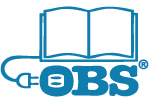BEA has always been the book industry’s main show of the year in the US, when publishers release their Fall lists to the bookstores and libraries, offering advanced peeks at exciting new books in the form of readings, advance galleys, and author breakfasts. Vendors to the trade used to enjoy a major presence at the fair: printers, typesetters, paper suppliers, and wholesalers frequently had their own hall, as did small and independent publishers. Before the days of POD and Amazon, self-publishing companies had only a couple of booths for a low impact presence. In the mid-‘90s at BEA Chicago, we in the burgeoning New Media area (CDs and internet) got our own hall for the first time. But while we shared media platforms, we found the hall’s content mix uncomfortable because so much of the new media at that time was dedicated to pornography, while us internet publishing pioneers were focused on STM and academia! Distances were so vast between halls that some visitors Roller bladed between books and New Media. It seemed then like the publishing industry knew no bounds, and would just keep growing! It was impossible to walk all the show floors during those Memorial Day weekends.
Trade booths’ crowded aisles in the main hall sparkled with costumed celebrities, Big Birds and TV characters performing marketing gimmicks, engaging attendees, handing out free books and other cool swag, all of which got capped off by big parties at night. One year in New York, Ingram invited us all onto the aircraft carrier Intrepid, docked nearby in the Hudson, for cocktails. In Vegas, Ken Kesey’s publisher opened up his psychedelic “Further” bus for visiting hours and cocktails after the show, and Ingram (again!) invited everyone to dance the night away at the Shark nightclub, showcasing Roomful of Blues.

The most exciting BEA for me was Miami in 1993, where OBS launched the first “Internet Start-up Booth,” co-sponsored by the companies like Internet Society, O’Reilly, and Cisco Systems. At our booth we spread the word about this brand new phenomenon. Our one-sheet “What is the Internet?” flyer described a distributed, open source and scale-able network of networks, that we predicted would totally transform our industry! Disintermediated! Ubiquitous and global! Free! “Every client a server,” went out the clarion cry, peer to peer. A meritocracy of mind beckoned from within this new city of bits, spurred on by the twin mantras “Content is king,” and “information wants to be free.” We thought we heralded creative new online opportunities, but in fact may have unwittingly acted as the sharp edge of disruption, breaking into packets the very industry from which we arose.

Last week, BEA at the NYC Javits Center had the theme of “UnBound.” Shelves of self-published, or rather, independently published authors’ books greeted visitors at the front doors – more than a million such books in the US in 2018! The show’s focus in 2019 seems to have shifted from that of a 3-day marketplace where publishers compete for booksellers’ attention, to a face-to-face network of computer-powered publishing professionals – authors, agents, scouts, indie publishers – seeking out personal contacts. The traditional booths layout morphed into more casual and less formal meeting places – islands of tables amid larger aisles, open meeting spaces in the capacious upper and lower floors. Fewer actual publishers and smaller booths seemed to be the rule this year on the main floor, while the number of floaters was up and opportunities for conversation many.
Where in the ‘90s it would take 3 or 4 hours just to study the hefty BEA Exhibitor catalog to learn which publishers would be attending; in this unbound and more unstructured year, the whole show floor was walkable in a morning. Some new publishers caught our eye, notably in the religious and political areas, as well as a large area showing “sidelines” such as RBG jewelry, refrigerator magnets, notebooks, fudge and scarves. Some sessions offered information about new areas of industry growth, such as accessibility, that promises to further render content interoperable, fluid, free, offering publishers new ways to collaborate. The show for us was largely devoted to meeting colleagues and clients. Before these unbound times when every author can be a publisher, thanks to the internet, BEA was all about books finding their way, amid great splash and splendor, to market. Last week’s show offered opportunity for the people behind the books to walk away from their desktop computers, meet face to face, and strategize about the future of a less structured publishing industry.
